A Brubacher Excavating John Deere 450D excavator performs site work in 2017.
It takes a certain level of honesty to purchase a large piece of equipment and say to the salesman as you leave the dealer, "I'm sure you will be back to repossess it. That's an awful lot of money. I don't think I'll be able to pay it back." Yet that is exactly what Ben Brubacher did when he started his business, Brubacher Excavating, in 1971.
The item in question was a John Deere 310, purchased for $17,500, a huge sum at the time and a bold move for a young man attempting to start his own business while still working for his father. The salesman, however, had no qualms about allowing the purchase and in reply to his customer's doubts he said, "Ben, if I know you, you will do good work and you will own another one by the end of the year."
By the end of the year, Ben Brubacher had indeed added a second John Deere, a 310A, to his thriving business. He continued working side-by-side with his father, each bidding and working on their own projects while relying on one another to help out with resources as needed. They would bill each other and settle up every two weeks. Finally, in the mid-1980s, Ben bought out his father's business, which was largely involved in agricultural work.
Brubacher Excavating Inc. continued to grow substantially from its agricultural roots, moving from working with farmers into house basements and small subdivisions to multi-million-dollar residential communities, golf courses and commercial projects in the 1990s and beyond. At the helm today is Keith Brubacher, who leads the company in the completion of new goals.
Projects Across Southeastern Pennsylvania
A strong market for the company recently has been warehouse infrastructure projects in the Lehigh Valley, Pa., area. In total, Brubacher has prepared several million square feet for warehouses. One of the most notable, according to Keith, was a 1.2 million sq.-ft. warehouse that was completed a few years ago.
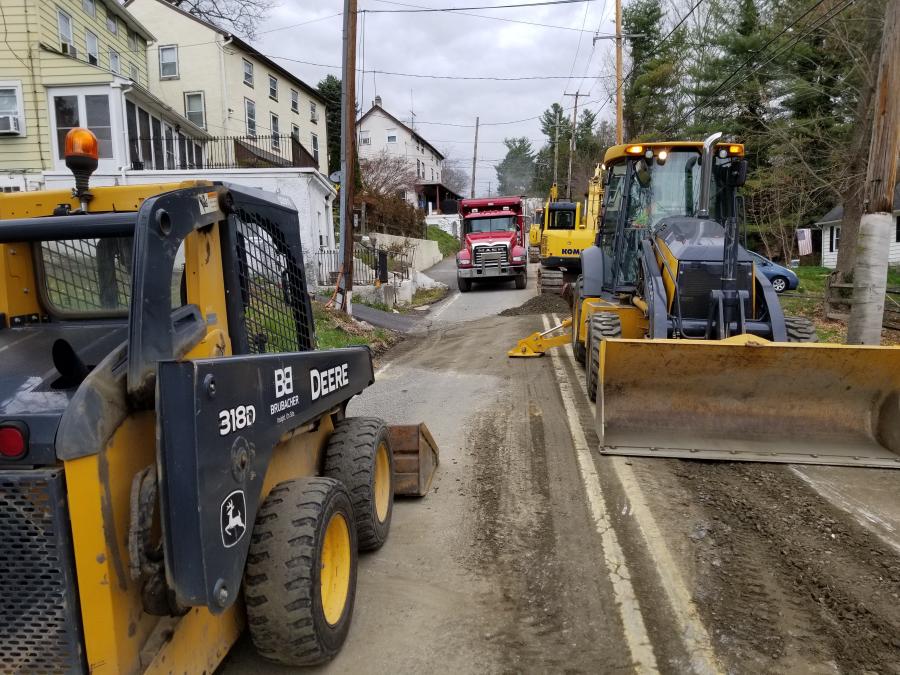 "We finished on-time, on-budget with no change orders related to scope, other than what the owner specifically directed and we had one punch list item that was corrected before the gentleman left the site," he said. "We are very proud of that type of quality and workmanship on our projects."
"We finished on-time, on-budget with no change orders related to scope, other than what the owner specifically directed and we had one punch list item that was corrected before the gentleman left the site," he said. "We are very proud of that type of quality and workmanship on our projects."
The company is involved with a number of water main replacement and extension projects throughout southeastern, Pa. Keith said, "Providing upgraded infrastructure for the clients of major water utilities so that they have clean, reliable drinking water without their roads full of patched areas from multiple repairs to old lines … that is something we are really pleased about from a community perspective."
Additionally, Brubacher has taken great pride in being involved in a number of national cemetery projects over the last few years, including site work for several phases of large national cemetery projects in the southeastern, Pa., area.
"We are very pleased to be part of providing a resting place for those that have served our country well," Keith said.
A Growing Legacy
How does a company that started with nothing more than the moxie shown by its founder continue to grow over decades?
"It starts with great people," Keith said. "We believe that a great team of committed and competent people who work together well are willing to be flexible and not get hung up on their egos and preferences will always find a great place in construction. Even though we started out doing agriculture and residential work, we are still using the same tools, for the most part, equipment and things with tracks, engines, buckets and tires, but we are working in very, very different industry segments today. The common core is the people."
A Strong Supporter
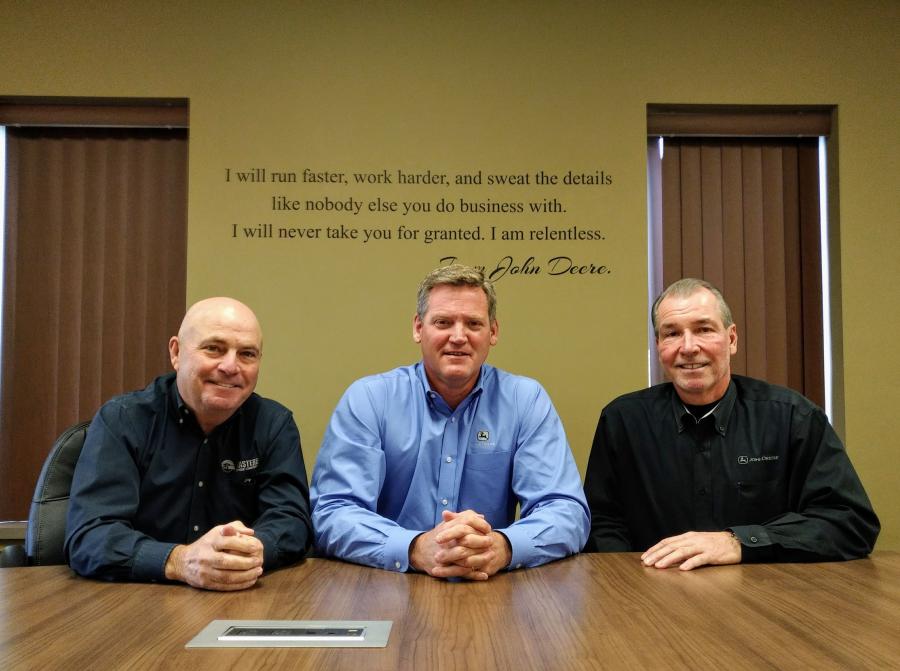 Additionally, Brubacher has worked hard over the past eight years to diversify its clients and market. A corollary to that the company leadership believes, is having good partners — that's where companies like Plasterer Equipment Co. Inc. comes in. Brubacher has done business with Plasterer since the mid-1970s.
Additionally, Brubacher has worked hard over the past eight years to diversify its clients and market. A corollary to that the company leadership believes, is having good partners — that's where companies like Plasterer Equipment Co. Inc. comes in. Brubacher has done business with Plasterer since the mid-1970s.
According to Keith, one major reason for this long-standing relationship is that, "When things do change unexpectedly or you experience a down cycle, Plasterer is there to stand by you during those times, not just when you are buying lots of new equipment and writing million-dollar purchase orders. That's a key distinguishing trait between people that are simply here to sell you something today, but not support or stand by you when you are not buying a lot of new equipment. Those are things that really test the people that are there for the long haul and have strength of character."
Mike Kernan, vice president of Plasterer Equipment, concurred.
"One of the things we do from Tim Houser, company president, all the way through management, is having everyone stay involved with the account," he said. "The reason we have had a good long-term relationship with our customers is that whenever a contractor is looking to buy equipment, he generally is getting the most attention from everyone. We always believe the sustainability of a relationship is really created if you give a customer as much attention after the sale as long as possible — even more attention than you gave during the sale. That is the key to building a sustainable relationship and that is what we have tried to do with all of our customers."
Kris Hay, director of fleet of Brubacher Excavating, has seen this approach firsthand.
"The service department is very responsive," said Hay. "To put it into perspective, a half-day to a day's response time from Plasterer is typical when we call in for help. You are in the four- to five-day range with some others. That is huge. That is appreciated and is part of what helps us continue with the relationship. It gets trying when you are waiting on service. We also have excellent support from Plasterer Equipment and Deere Corporate with technician training. We do most of our maintenance and repairs in-house, so to have that kind of support with service advisors and in-house training has been huge for us. It really does set Plasterer apart."
Growing With Deere
Brubacher currently has 37 primary pieces of John Deere equipment in its fleet, primarily backhoes, dozers and skid loaders. The oldest piece, apart from a 310A backhoe at the family's cabin, is a 650J, approximately 10 years old. The most recent item, a 310SL backhoe was purchased about two months ago. However, Deere equipment was not always as abundant at the company.
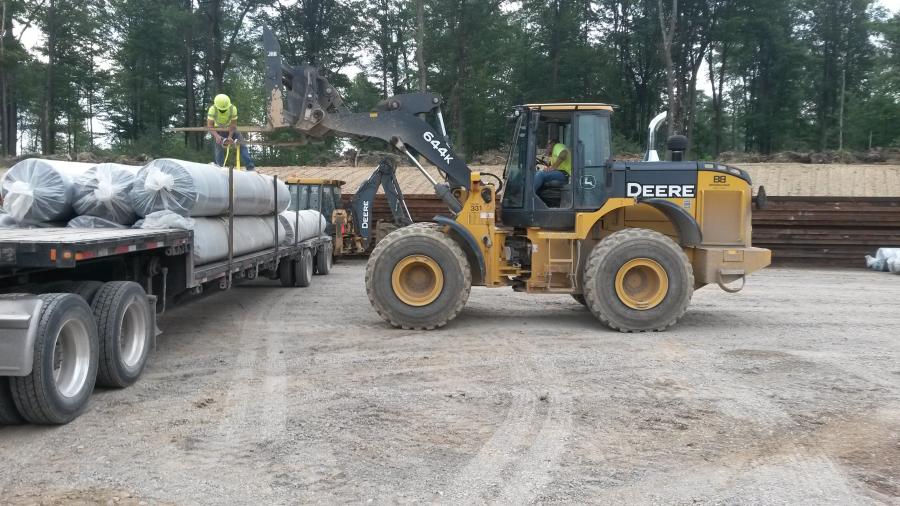 "In the early part of the 2000s, there was very little John Deere equipment in our fleet," Hay said "At about that time, Plasterer came to us with a much more flexible approach, that allowed us a variety of opportunities to acquire equipment, rental purchase options, as well as a more favorable approach to doing business together. This came at an important time because we were really growing our fleet. Since then there's been a much higher level of flexibility and creativity on rental purchase options, on rental options that really met our needs in ways that were rather uncommon in the marketplace, at least for companies our size. Mike [Kernan]'s involvement in presenting some new alternatives really turned the tide there. When we are making decisions on what we buy, we are looking far beyond the sale price of the machine. We are looking to all the things we anticipate it will need during its lifespan in our fleet ."
"In the early part of the 2000s, there was very little John Deere equipment in our fleet," Hay said "At about that time, Plasterer came to us with a much more flexible approach, that allowed us a variety of opportunities to acquire equipment, rental purchase options, as well as a more favorable approach to doing business together. This came at an important time because we were really growing our fleet. Since then there's been a much higher level of flexibility and creativity on rental purchase options, on rental options that really met our needs in ways that were rather uncommon in the marketplace, at least for companies our size. Mike [Kernan]'s involvement in presenting some new alternatives really turned the tide there. When we are making decisions on what we buy, we are looking far beyond the sale price of the machine. We are looking to all the things we anticipate it will need during its lifespan in our fleet ."
An Influential Association
The practice of looking ahead over the lifetime of the machine was one way in which Mike Vorster, C.E.M.P. Central Inc. has influenced Brubacher. The company first came into contact with Vorster when the first fleet manager at Brubacher saw an opportunity to go to one of Vorster's seminars. The seminar was costly, but Ben Brubacher trusted the manager's judgement and sent him. The principals taught in that seminar have been shaping Brubacher's fleet management approach ever since
"We have been influenced quite a bit through Mike Vorster, by his teaching and thinking about equipment management for nearly 20 years," Hay said. "We look holistically at our fleet management program, come up with a target set of hours and look at the anticipated owning and operating costs during that whole period.
 "Mike [Vorster] is frequently a speaker at John Deere fly-ins for customers," Hay added. "Keith was on the fly-in to a John Deere Signature Customer event and Mike was one of the presenters in a seminar on ownership and operating costs with the contractor and how the dealer impacts that. (I'm paraphrasing, but really what he was saying is that the price of the machine is the price of the machine and everybody is looking to try to sell the machine). One of the biggest impacts on the operating end of the ownership and operating costs is the support after the sale and what it really comes down to in my mind is the dealer's impact on maximizing machine uptime. When the machines are up and running, they are making money, when the machines are down they are not making money. All of that effects the operating costs of the machine."
"Mike [Vorster] is frequently a speaker at John Deere fly-ins for customers," Hay added. "Keith was on the fly-in to a John Deere Signature Customer event and Mike was one of the presenters in a seminar on ownership and operating costs with the contractor and how the dealer impacts that. (I'm paraphrasing, but really what he was saying is that the price of the machine is the price of the machine and everybody is looking to try to sell the machine). One of the biggest impacts on the operating end of the ownership and operating costs is the support after the sale and what it really comes down to in my mind is the dealer's impact on maximizing machine uptime. When the machines are up and running, they are making money, when the machines are down they are not making money. All of that effects the operating costs of the machine."
"The machine operator has a significant impact on what it actually costs to operate that machine," Keith said. "That ties into the information John Deere collects through telematics and Plasterer monitors along with us. We can see if there is something getting off track, intervene and make adjustments to resolve that situation. The training for our technicians and our operators is well supported by Deere and Plasterer. Even though we have our own technicians, they don't use that as a weapon to say, ‘well, since you don't hire us to do all of your service, we are going to hold all of this information close to the vest. It's a real partnership, even though we choose to self-perform much of the maintenance. When it comes to education and resources, we see a good partnership there."
GPS Adaptability
One great perk about John Deere equipment, Hay pointed out, is its open platform for GPS.
"We are mostly a Trimble-based company, but Plasterer is one of the best at having that open platform from Deere, that GPS support in-house and ready to go when we need rental GPS dozers," he said.
"When we order dozer inventory, we focus on the best options available in an effort to give our customers choices with GPS applications" Kernan said of this approach, "we use open architecture so we can put GPS on the customer's machine and it's not exclusive to Topcon or Trimble. We can do either. We have an integrated grade control (IGC) department. We have an IGC specialist on staff and that focus is all he does. Plasterer has a system called Plasterer Care Plus, which we tie in with John Deere telematics on any machine with a customer. We have one person in the company responsible for monitoring that machine and if that machine has fault codes coming in, we actually monitor the fault codes. We call the customer proactively, sometimes before they are even aware that they have a fault code and we are trying to get on top and ahead of machine problems that might put the machine down.
"Plasterer Care is a company-branded comprehensive process with dedicated employees," he added. "Plasterer Care starts when the machine comes into inventory and critical maintenance and product support information is captured for that machine and archived specific to the machine serial number in multimedia. That information is shared at delivery by our Plasterer Care coordinator, who also uses the opportunity to train our customers on the benefits of JDLink technology. By utilizing JDLink technology the Plasterer Care team can track preventive maintenance, machine utilization, and even monitor machine health by following up on critical alerts. All of this was developed with one simple goal in mind — minimize our customer's downtime and maximize their productivity."
Keith has found that this type of adaptability is ideal for Brubacher's needs.
"We have a technology technician," he said. "It is a perfect marriage between Plasterer's support and ours. It is an interface utilized pretty heavily."
"We realized we have all this great information, but no one investing enough time to sift through it and do something about it," Hay said. "We created that position and one of their (responsibilities is to interact with Plasterer, look at those codes and make sure we are taking the proper action. Sometimes we get codes, we call them ghost codes, that pop up but don't need action. So, there is a learning curve there. Plasterer has been very helpful in working though these codes so they don't raise any issues. It's a great partnership."
"From a technology standpoint," he continued, "That partnership and where we are going with it is about operator training and accountability. We have the information and the telematics, we just need to get it linked up to be operator-specific. Once we do that, we can help operators further develop their operating habits. That ties into grade assist and grade control on equipment. It's been around for years now with dozers and is moving into other types of equipment. The leader in equipment technology that most impacts operator efficiency and behavior is going to earn a larger part of our business."
Technology and the Industry
Between the industry's labor shortage, focus on safety improvements and push for efficiency, Keith sees the value in this type of tech.
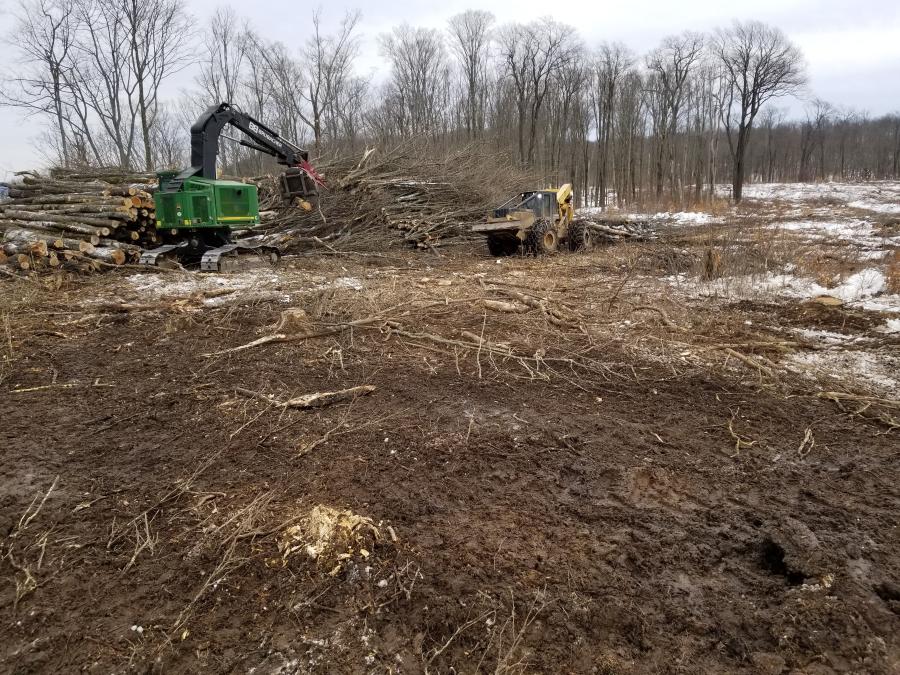 "It's no secret that finding highly skilled job applicants in significant quantity is a challenge in this industry," he said. "The more we can do to shorten their learning curve, the better. I also see some other things on the horizon where a machine may be able to memorize a particular operator's habits and evaluate them against best practices that are stored and use artificial intelligence to look at the gap and provide coaching to the operator or to their supervisors about how to be more efficient. I see that as a huge opportunity to improve safety, productivity, efficiency, care of equipment, lower operating costs. I get really excited thinking about that possibility."
"It's no secret that finding highly skilled job applicants in significant quantity is a challenge in this industry," he said. "The more we can do to shorten their learning curve, the better. I also see some other things on the horizon where a machine may be able to memorize a particular operator's habits and evaluate them against best practices that are stored and use artificial intelligence to look at the gap and provide coaching to the operator or to their supervisors about how to be more efficient. I see that as a huge opportunity to improve safety, productivity, efficiency, care of equipment, lower operating costs. I get really excited thinking about that possibility."
"The other interesting thing that is going on," Keith continued, "is that we used to have these neatly segmented aspects within the construction business; fleet, operations, and survey and engineering. We now have computing power on tracks that has more power than what the surveyors and engineers used to have in the office. You have all of that in the hands of an operator. The operator needs to know how to interpret and use this information, so all of these three areas are blending. We are early in the stages of figuring out what that looks like, but we know the former structures aren't going to be adequate for capitalizing on future opportunities unless we change how our businesses are structured."
Hay added, "The whole safety and intelligence factors of machines becoming aware of their surroundings can be used to limit where and how they function. I see that as a huge opportunity. We are not far from being able to take a printout to an owner and say ‘this shaded area is where we will dig and our machine won't go outside of it. Here is the data file that manages that.' There is 360-awareness of the operator and maybe RFID tags for the crew members around him so the machine automatically de-powers or stops functioning if it encroaches on the wrong area. The technology is there and those are things that really can start to change how the construction industry is perceived by the general public and can help us minimize the risks brought about by lesser skilled people quickly moving up the ranks of a construction company."
It All Comes Back to Trust
However, just as the John Deere salesman trusted Ben Brubacher all those years ago, trust between companies is still the most important factor in success.
"What helps to propel our success and our relationship with Plasterer and Deere, it really comes back to trust," Keith said. "I share with our new employees that although they think they are joining a construction company, we're really in the trust-building business. We build trust with our clients and coworkers.
Agreeing, Hay added "With Plasterer, there have been some situations over the last four decades we have been dealing with them, where we each contributed at times to things that didn't turn out well and in every circumstance, we worked through them in a way that either preserved or in some cases, even strengthened the relationship. Tim Houser as owner and Mike [Kernan] and their team have earned our trust by dealing openly and honestly with us and that really serves as a basis for resolving the occasional issues."
Kris pointed out some of the smaller, yet vital ways John Deere and Plasterer serve their customers, helping to strengthen those relationships.
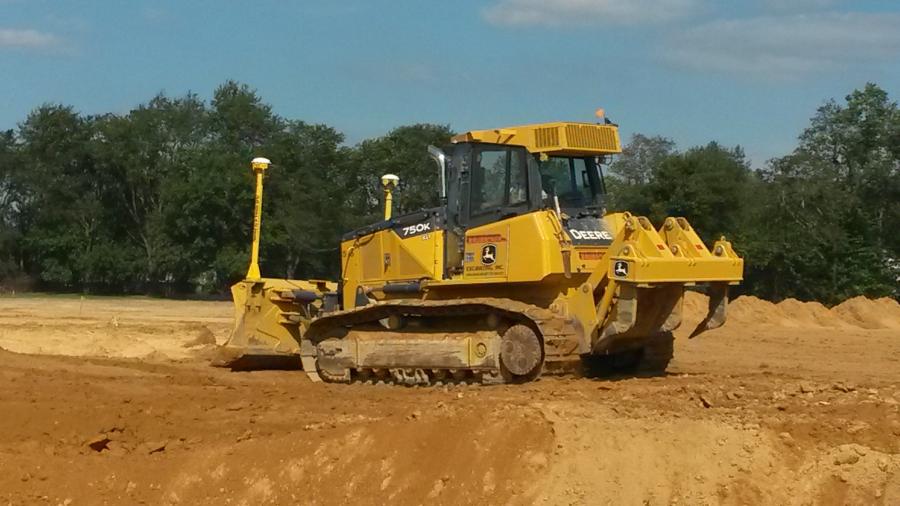 "John Deere in general or maybe at Plasterer, I don't know where the line gets drawn — there is a very reasonable return policy on parts," he said. "That is not something that is universal. Parts are sometimes ordered that are not needed and it is a struggle with other companies to return their parts. We very much appreciate that, as well as Plasterer's twice a week delivery service, which is very helpful and instrumental in us lowering our operating costs, so we don't have to pay a technician to run to pick up parts. That helps to lower our operating costs. We don't have Deere parts sitting on a shelf, because we are unable to return them. That's a big plus to us. Deere corporate has been the most attentive to our needs. I've always been highly impressed when they are here and they have done their homework and they know the research. They know what our pain points are. They are not just coming in unprepared. It's obvious there has been good communication with Plasterer and Deere to identify those areas."
"John Deere in general or maybe at Plasterer, I don't know where the line gets drawn — there is a very reasonable return policy on parts," he said. "That is not something that is universal. Parts are sometimes ordered that are not needed and it is a struggle with other companies to return their parts. We very much appreciate that, as well as Plasterer's twice a week delivery service, which is very helpful and instrumental in us lowering our operating costs, so we don't have to pay a technician to run to pick up parts. That helps to lower our operating costs. We don't have Deere parts sitting on a shelf, because we are unable to return them. That's a big plus to us. Deere corporate has been the most attentive to our needs. I've always been highly impressed when they are here and they have done their homework and they know the research. They know what our pain points are. They are not just coming in unprepared. It's obvious there has been good communication with Plasterer and Deere to identify those areas."
Both agree the key link that ties it all together is the trust and the people-centric focus that really brings success and longevity to both businesses.
"The other part might be helpful in tying that together is sharing our purpose," Keith said. "Our purpose is to be uncommonly refreshing in our approach to people, projects and solutions. Our goal is to continually improve our delivery of that to our clients, to our co-workers, business associates and to the public. Some days we hit that mark more closely than others, and the pursuit of the goal is what drives us every day. We don't settle for simply being transactional with our clients and business partners. That is really reflected throughout our relationship with Plasterer. We are able to share insight with one another, even sometimes the uncomfortable truth that we need to hear and talk about. Our clients value this approach too, along with the insight and problem-solving we bring to their projects, reducing stress and managing risk on their projects."
CEG
Today's top stories



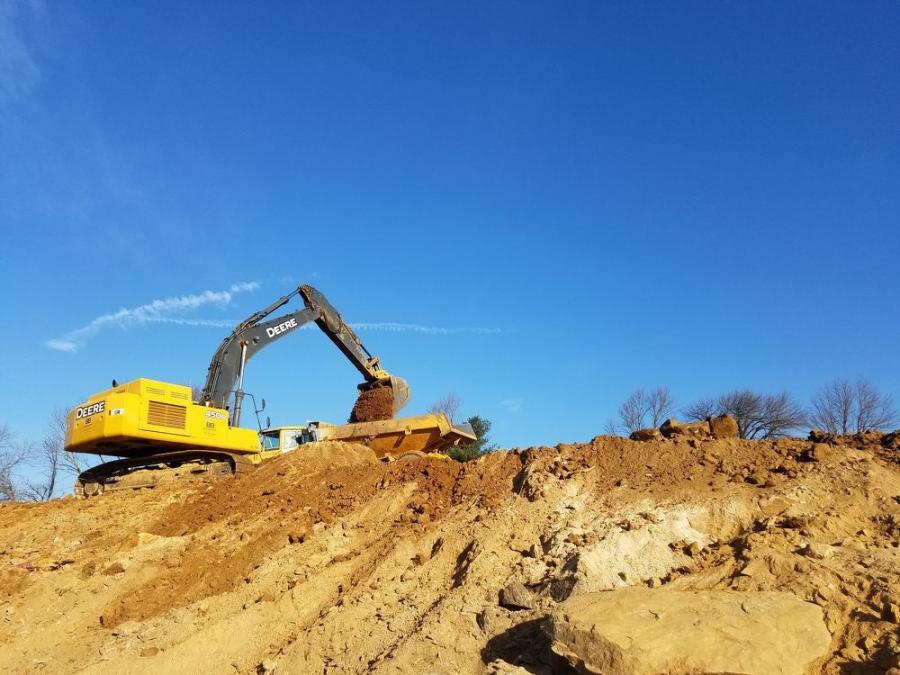









 "We finished on-time, on-budget with no change orders related to scope, other than what the owner specifically directed and we had one punch list item that was corrected before the gentleman left the site," he said. "We are very proud of that type of quality and workmanship on our projects."
"We finished on-time, on-budget with no change orders related to scope, other than what the owner specifically directed and we had one punch list item that was corrected before the gentleman left the site," he said. "We are very proud of that type of quality and workmanship on our projects." Additionally, Brubacher has worked hard over the past eight years to diversify its clients and market. A corollary to that the company leadership believes, is having good partners — that's where companies like
Additionally, Brubacher has worked hard over the past eight years to diversify its clients and market. A corollary to that the company leadership believes, is having good partners — that's where companies like  "In the early part of the 2000s, there was very little John Deere equipment in our fleet," Hay said "At about that time, Plasterer came to us with a much more flexible approach, that allowed us a variety of opportunities to acquire equipment, rental purchase options, as well as a more favorable approach to doing business together. This came at an important time because we were really growing our fleet. Since then there's been a much higher level of flexibility and creativity on rental purchase options, on rental options that really met our needs in ways that were rather uncommon in the marketplace, at least for companies our size. Mike [Kernan]'s involvement in presenting some new alternatives really turned the tide there. When we are making decisions on what we buy, we are looking far beyond the sale price of the machine. We are looking to all the things we anticipate it will need during its lifespan in our fleet ."
"In the early part of the 2000s, there was very little John Deere equipment in our fleet," Hay said "At about that time, Plasterer came to us with a much more flexible approach, that allowed us a variety of opportunities to acquire equipment, rental purchase options, as well as a more favorable approach to doing business together. This came at an important time because we were really growing our fleet. Since then there's been a much higher level of flexibility and creativity on rental purchase options, on rental options that really met our needs in ways that were rather uncommon in the marketplace, at least for companies our size. Mike [Kernan]'s involvement in presenting some new alternatives really turned the tide there. When we are making decisions on what we buy, we are looking far beyond the sale price of the machine. We are looking to all the things we anticipate it will need during its lifespan in our fleet ." "Mike [Vorster] is frequently a speaker at John Deere fly-ins for customers," Hay added. "Keith was on the fly-in to a John Deere Signature Customer event and Mike was one of the presenters in a seminar on ownership and operating costs with the contractor and how the dealer impacts that. (I'm paraphrasing, but really what he was saying is that the price of the machine is the price of the machine and everybody is looking to try to sell the machine). One of the biggest impacts on the operating end of the ownership and operating costs is the support after the sale and what it really comes down to in my mind is the dealer's impact on maximizing machine uptime. When the machines are up and running, they are making money, when the machines are down they are not making money. All of that effects the operating costs of the machine."
"Mike [Vorster] is frequently a speaker at John Deere fly-ins for customers," Hay added. "Keith was on the fly-in to a John Deere Signature Customer event and Mike was one of the presenters in a seminar on ownership and operating costs with the contractor and how the dealer impacts that. (I'm paraphrasing, but really what he was saying is that the price of the machine is the price of the machine and everybody is looking to try to sell the machine). One of the biggest impacts on the operating end of the ownership and operating costs is the support after the sale and what it really comes down to in my mind is the dealer's impact on maximizing machine uptime. When the machines are up and running, they are making money, when the machines are down they are not making money. All of that effects the operating costs of the machine." "It's no secret that finding highly skilled job applicants in significant quantity is a challenge in this industry," he said. "The more we can do to shorten their learning curve, the better. I also see some other things on the horizon where a machine may be able to memorize a particular operator's habits and evaluate them against best practices that are stored and use artificial intelligence to look at the gap and provide coaching to the operator or to their supervisors about how to be more efficient. I see that as a huge opportunity to improve safety, productivity, efficiency, care of equipment, lower operating costs. I get really excited thinking about that possibility."
"It's no secret that finding highly skilled job applicants in significant quantity is a challenge in this industry," he said. "The more we can do to shorten their learning curve, the better. I also see some other things on the horizon where a machine may be able to memorize a particular operator's habits and evaluate them against best practices that are stored and use artificial intelligence to look at the gap and provide coaching to the operator or to their supervisors about how to be more efficient. I see that as a huge opportunity to improve safety, productivity, efficiency, care of equipment, lower operating costs. I get really excited thinking about that possibility." "John Deere in general or maybe at Plasterer, I don't know where the line gets drawn — there is a very reasonable return policy on parts," he said. "That is not something that is universal. Parts are sometimes ordered that are not needed and it is a struggle with other companies to return their parts. We very much appreciate that, as well as Plasterer's twice a week delivery service, which is very helpful and instrumental in us lowering our operating costs, so we don't have to pay a technician to run to pick up parts. That helps to lower our operating costs. We don't have Deere parts sitting on a shelf, because we are unable to return them. That's a big plus to us. Deere corporate has been the most attentive to our needs. I've always been highly impressed when they are here and they have done their homework and they know the research. They know what our pain points are. They are not just coming in unprepared. It's obvious there has been good communication with Plasterer and Deere to identify those areas."
"John Deere in general or maybe at Plasterer, I don't know where the line gets drawn — there is a very reasonable return policy on parts," he said. "That is not something that is universal. Parts are sometimes ordered that are not needed and it is a struggle with other companies to return their parts. We very much appreciate that, as well as Plasterer's twice a week delivery service, which is very helpful and instrumental in us lowering our operating costs, so we don't have to pay a technician to run to pick up parts. That helps to lower our operating costs. We don't have Deere parts sitting on a shelf, because we are unable to return them. That's a big plus to us. Deere corporate has been the most attentive to our needs. I've always been highly impressed when they are here and they have done their homework and they know the research. They know what our pain points are. They are not just coming in unprepared. It's obvious there has been good communication with Plasterer and Deere to identify those areas."











